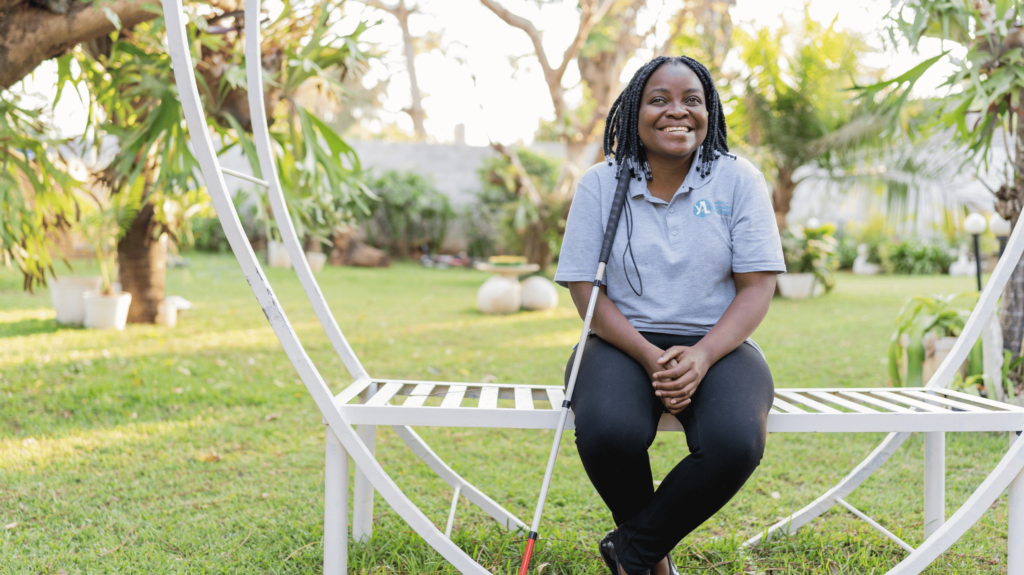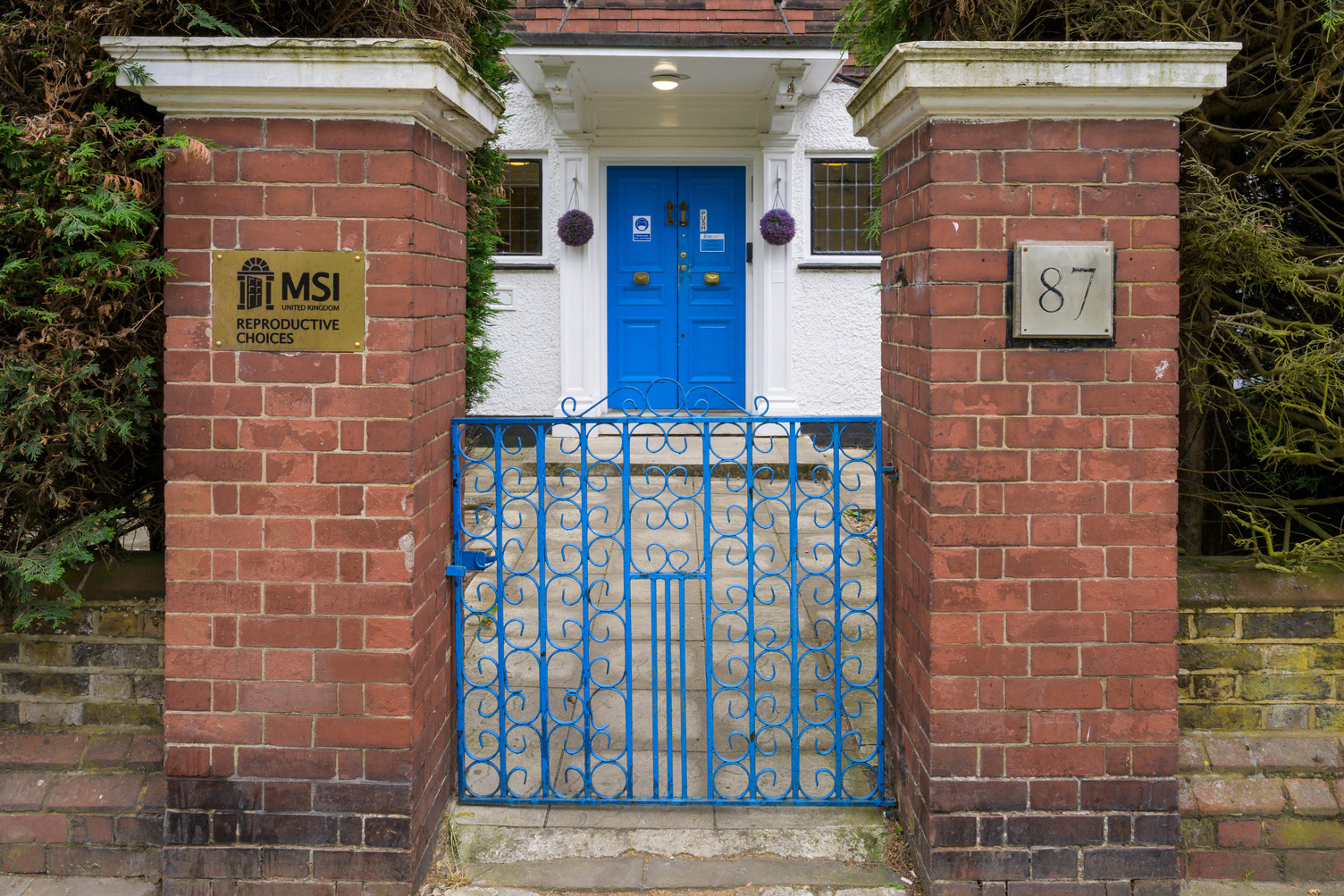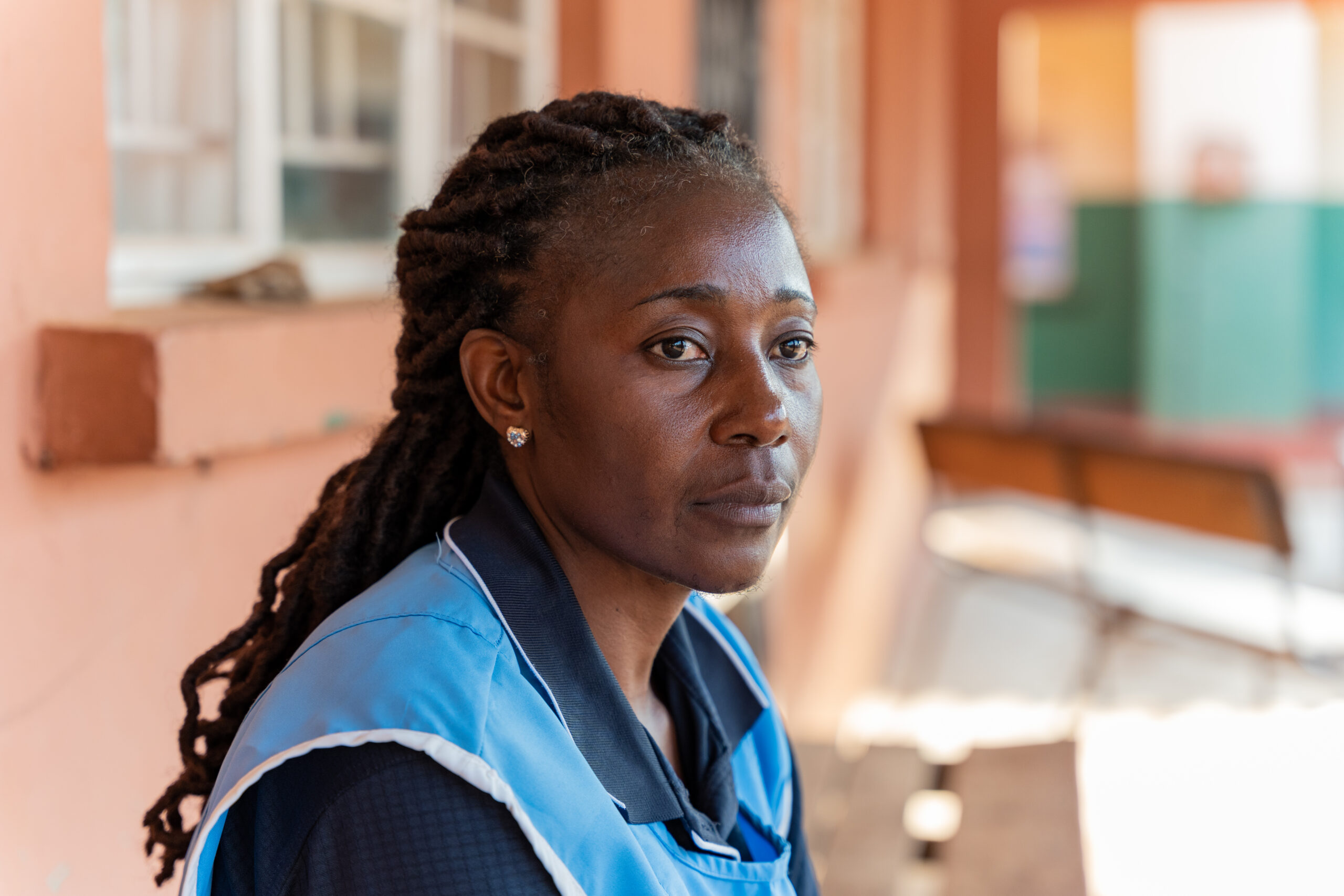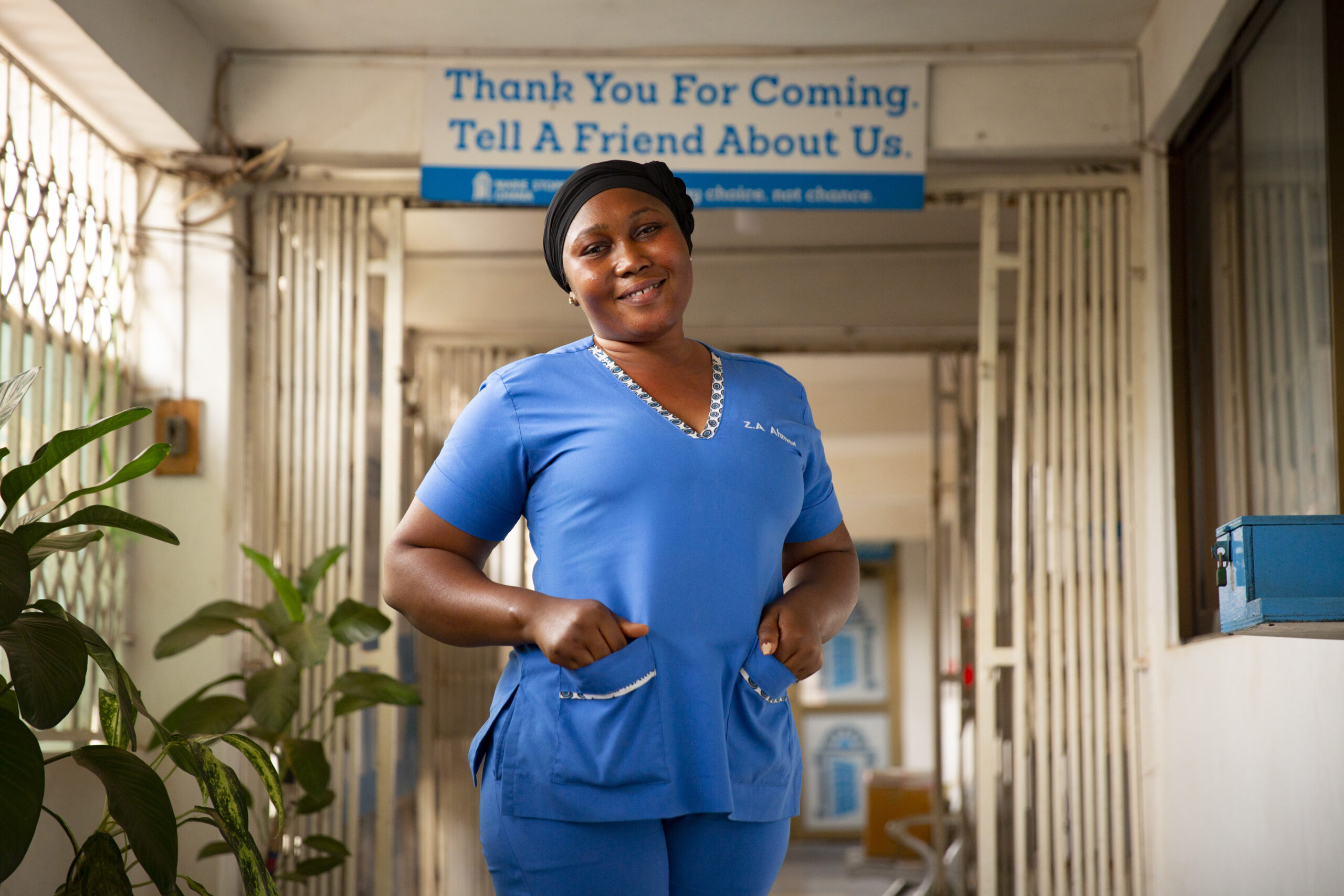
At MSI, we’re committed to an inclusive culture, where every team member can thrive and feel valued and where all clients feel welcome and supported.
This vision is outlined in our 2030 strategy and to make sure it translates into real action, we’ve formed a Global Diversity, Equality and Inclusion Panel. Made up of a diverse group of 12, representing every region we work in, the panel is a brilliant driving force helping MSI become a truly inclusive and equitable organisation.
In this Q&A, Inonge Wina Chinyama, Operations Director for MSI Zambia, and Catherine Harry, MSI Cambodia’s Digital Marketing Lead, talk about their passion for diversity, equality, and inclusion (DEI) and their experiences of being on the Global DEI Panel…
What brought you to MSI and what’s your role here?
Inonge: I joined MSI Zambia eight years ago now – you could say I’m part of the furniture! I have a background in marketing and first joined as a Marketing Manager before moving on to a role advocating for adolescents and people with disabilities to have greater access to reproductive healthcare. And now I’m an Operations Director!
Catherine: I joined MSI Cambodia in 2019 with a passion for content creation, social media, vlogging, and feminism. I also have my own vlog called ‘A Dose of Cath’ where I speak about feminism and sexual reproductive healthcare and rights.
You’re a champion of diversity, equality, and inclusion at MSI. These words and concepts encompass so much… what do they mean to you?
Inonge: Thinking about DEI has changed my perspective on my life and career and helped me to push myself to go for bigger opportunities. When I joined the Global DEI Panel, I was not in a senior leadership role. I was knee-deep in this work, learning about the importance of women in leadership and inclusion and thinking about the unique value each of us can bring to the table. So, when a leadership opportunity to manage operations in Zambia came up, I pushed through my initial thought that it sounded like a man’s role and thought “I can do this.” Thinking through inclusion helped me look at my abilities and the value that I bring differently. Well, the rest is history.
Catherine: On a personal level, these words trace back to one of my identities as an intersectional feminist. I believe that true equality should account for people’s backgrounds, experiences, privileges – every aspect of them. When people say “I don’t see colour” or “I don’t see gender” it’s dismissive of people’s differences and where they came from. I have lived experience as a woman, so gender equality is the biggest thing I champion for. At the same time, I’m in a learning process of talking to other people – indigenous, LGBTQI, disabled – but I identify as their ally, not a champion, because I don’t want to take away their space and voices.
Why do you think DEI is crucial to an organisation’s future success, and for MSI specifically?
Inonge: Well, there are a lot of reasons, but one is that it makes an organisation a more attractive place to work. People are increasingly looking at these things and asking, “is this an organisation I want to work for?” With a focus on DEI, we can attract diverse future talent and help secure a better future for MSI.
Catherine: There’s a saying I like, “Nothing about us, without us.” A thriving organisation listens to everyone’s voices, particularly at a client-centred organisation like MSI. If we’re building a new clinic and only looked at it from the perspective of able-bodied people, we could miss whether people with disabilities would be able to access the building and our services. We can have blind spots in the services we deliver if we aren’t taking everyone’s voices into account.
And what made you take the leap to join the Global DEI Panel?
Inonge: When the panel formed at the start of 2021, my work focused on increasing MSI Zambia’s reach to help more young people and people with disabilities. I was constantly thinking about how to move young people, and especially women, into leadership where they can have a voice and influence decision-making. Young people don’t need to be in junior roles – the world is changing, and this is their future. They need more of a say. So, by joining the panel I hoped to take my passion and learnings from this work and influence at a global level. I was interested in speaking to MSI’s leadership about what I think inclusion should look like and what our policies should include to help marginalised people.
Catherine: I’ve always been an advocate for these issues, so when I saw they were recruiting panel members I thought it would be a great opportunity to use my passion to help drive DEI forward within MSI. I wanted to be part of that change.
What does the global DEI panel at MSI do?
Inonge: We drive DEI initiatives by influencing leadership and advocating for culture change – all so we can achieve our DEI goals in the MSI 2030 strategy. We look at what the DEI gaps are and then come up with ideas on how to fill the gaps. And then we figure out how to get everyone onboard and make sure the change happens.
Catherine: First up we’ve been working on setting out our Global DEI Strategy. The panel coordinated wide participation that fed into it, holding workshops and meetings, and helping coordinate a massive engagement survey. Next up is overseeing its implementation.
Do you have any successes or lessons learned from the work so far that you can share?
Inonge: The biggest thing we’ve worked on is the development of the strategy. We didn’t have any precedent, there was no previous year’s version to work from – we did it from scratch. I’m very proud of that. A lesson learned would be that MSI is a huge organisation made up of very different regions, cultures, and ways of looking at things, so we can’t assume that a global strategy is going to be viewed the same everywhere. We learned we need to contextualise DEI – this is critical.
Catherine: One of the things I’m most proud of is getting each country programme to work on individual DEI action plans. Our country programmes might think DEI is important but sometimes it can fall on the backburner, so the panel has succeeded in giving that necessary nudge to make sure it’s an area of focus and there’s accountability.
Can you tell us what’s in focus for the panel in the near future?
Inonge: We’ll be reviewing individual country action plans to check their feasibility and whether they align with the global DEI strategy. And then comes the best part – making them happen!
Catherine: We’re planning a DEI Week to launch the strategy to the whole of MSI, and educate people on the importance of a diverse, equal, and inclusive workplace.
Not everyone’s an expert on the importance of diversity, equity, and inclusion. How do we get the entire organisation on board with DEI initiatives and help them understand the benefits?
Inonge: I think it’s important to bring to the forefront the voices of those who’ve had positive experiences with DEI like women leaders or someone with a disability talking about the successes they’ve had at work. It showcases inclusion in action and gives people role models.
Catherine: To make people care, you have to make them understand how DEI is related to them and how it affects their work. It’s a process, it doesn’t happen overnight. Within MSI, one approach is to get people to view it through the lens of the client experience… if we’re excluding certain groups of people then we wouldn’t be giving the sort of client-focused service that MSI is so proud of.
And how do we make sure DEI is baked into the structure of the organisation and that we’re holding ourselves accountable?
Inonge: It needs to come from the top. When our global leadership advocates for DEI and the strategy’s vision, then the whole organisation takes notice. I’ve seen lots of support coming from senior management at MSI – the panel has had meetings with them and we’ve been asked to think big and long-term, so I’ve felt we’ve been encouraged and listened to. And they’ve helped amplify DEI to the rest of MSI so it’s more visible.
Catherine: We need to have marginalised people as decision-makers. We need to hear from them. If our leaders aren’t made up of diverse types of people, then it’s easier to side-line different perspectives. And to keep us accountable, we need clear goals that we measure ourselves against, like MSI’s goals to achieve 50% female representation in senior leadership by 2025 (we’ve been pushing this forward and it now stands at 46%).
If you could choose one thing that the panel could achieve, what would it be?
Inonge: I can’t wait to hear our country programmes talk about what they’ve learned from the new strategy and how they’ve turned it into real and inclusive change in their own contexts – for me, seeing our hard work come off the page and into the world would be the biggest win.
Catherine: I’d want to be able to help all country programmes to have a diverse team that includes people who identify as LGBTQI, neurodivergent, disabled, etcetera. Seeing truly inclusive teams is my main goal.
Thank you for sharing your story and passion for DEI. Can you leave us with one piece of advice or food for thought?
Inonge: When you weave DEI into your strategy and mission, it shows you value people and want to see everyone succeed. It signifies you’re considering everyone who is with you and the value they bring. You don’t know how much loyalty you can generate when you make someone feel valued.
Catherine: Start talking to and actively listen to people who aren’t like you. Everyone has their story, and we all experience life very differently. Listen to people rather than speaking on behalf of them. You’ll soon realise there’s a lot of room for creating a diverse and inclusive environment for all of us.








